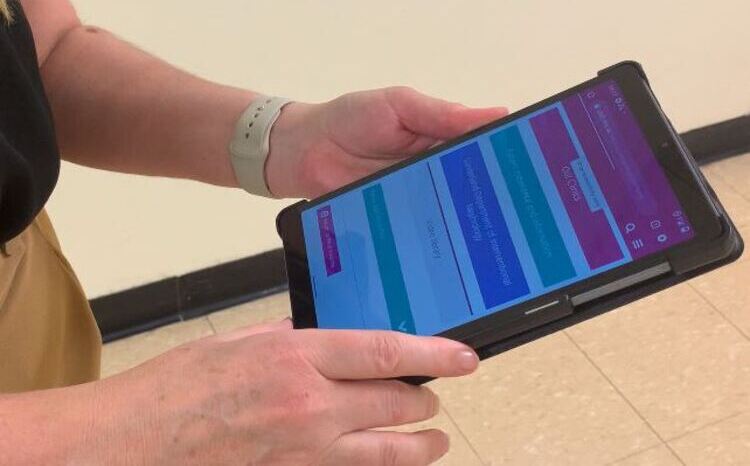Millions spent on mobile tech
- 25 March 2014

Successful Nursing Technology Fund trusts will spend millions on mobile devices such as tablet computers before the end of this month.
According to analysis done by EHI Intelligence, 31 of the 85 projects that have been awarded funding from the £30m first round of the Nursing Technology Fund involve deployments of mobile devices or systems.
Because the money has to be spent before 1 April, most of these projects involve buying hardware such as laptops, tablets and smartphones.
Devon Partnership NHS Trust has been awarded nearly £1m for two projects.
Nick Hopkinson, the trust’s associate director of IM&T, told EHI that because of the tight deadline, the trust will use the funding primarily to buy 200 Windows 8 hybrid tablets for its community and inpatient nurses and 136 iPads for its learning disability teams. The iPads come with specialist apps that are tailored to the needs of people with learning disabilities.
“The fund is primarily for hardware purposes. It’s a challenging timescale but the orders have been places and we are confident of delivery within the timescale,” he said.
“We knew we had to be looking at something which would be achieved within a rapid timescale. We made sure we could do that within the time given. It’s off the shelf equipment so it shouldn’t be too difficult.”
At the other end of the country, Pennine Care NHS Trust has also been awarded £1m, which will go towards deploying 1000 mobile devices to its community based staff.
Barbara Hoyle, the trust’s director of ICT, said it already has a mobile working project underway and the funding will help to accelerate it.
“Approximately 75% of our workforce provides care in a community setting and having access to mobile working technology will completely change the way we deliver care,” she said.
Because the project is already in flight, the April deadline has not proved challenging to the trust.
Jim Chase, managing director of Advanced Health and Care, which is working with a number of trusts on Nursing Technology Fund projects, believes there are two types that ”stand a chance of being wrapped up nice and tightly by April”.
The first is an extension of a current mobilisation project.
He said the company already has some iNurse deployments which will be extended via the fund.
“So they know what they are doing and procuring and who their supplier is so it’s just a case of signing on the dotted line to procure more licenses and source more mobile devices,” he said.
The other is where organisations are using the fund to buy hardware and infrastructure to support a bigger mobilisation deal.
Chase hopes NHS England will do a “lessons learned exercise”, where it polls trusts and suppliers to see what worked and what did not in the first round of the fund.
“I’m sure there’s an opportunity here to use the funding as a lever to promote integration and open system standards,” he added.
NHS England has received more than 300 expressions of interest for the second round of the Nursing Technology Fund, worth £70m. It plans to launch the second round in June this year.
Regional events for senior nurses aimed at helping them identify potential projects will be run in late April and early May.




